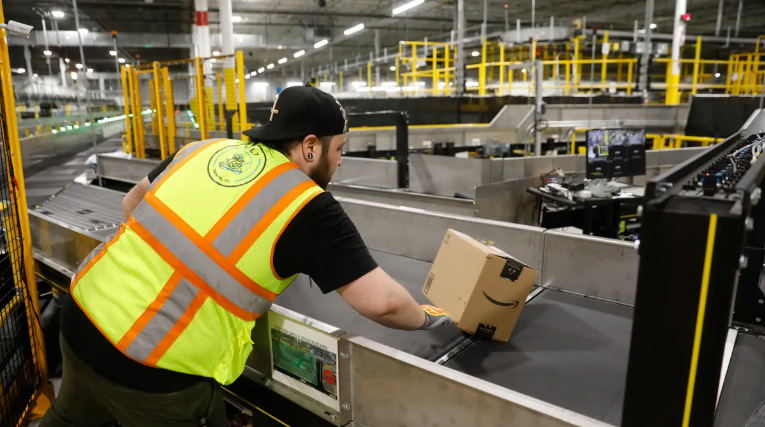This change reflects the improved packaging capabilities of sellers.
According to an announcement on Amazon's website, from that date, all products sent to US fulfillment centers, whether directly or through Amazon's supply chain services, must be prepared by the seller. This includes packaging, protective wrapping, labeling, and sealing before shipment.
Shipments created before 1/1/2026 will still receive Amazon's preparation services. However, for shipments created after this date that are not packaged according to standards, Amazon will not be responsible for compensation in case of damage or loss.
 |
An Amazon employee handling a package. Photo: Getty Images |
An Amazon employee handling a package. Photo: Getty Images
Major operational shift
Amazon initially offered packaging and labeling services to support new sellers and ensure that goods were well-protected during transit. However, according to an Amazon representative, most sellers can now handle this process themselves through their own teams, manufacturers, or third-party service providers.
"Most sellers on Amazon already prepare their own products. This allows FBA to focus on efficient warehouse operations and faster delivery speeds," the representative said.
For sellers without alternative arrangements, Amazon offers two options: self-packaging according to published guidelines, or partnering with an Amazon-approved service provider.
The "Ships in Product Packaging" program, which allows goods to be shipped in their original packaging, can also help sellers reduce the need for repackaging.
Early warning for adaptation
Charles Williams, senior manager of marketplace operations at consulting firm Blue Wheel, considers this one of Amazon's biggest operational changes in recent years.
"Proactive adaptation now will be key to maintaining a stable supply chain and avoiding compliance issues next year," he wrote on LinkedIn.
Williams recommends that affected sellers review their product catalogs to identify items currently relying on Amazon's packaging service. They should then update their packaging processes and FBA shipment plans to ensure uninterrupted operations.
The Dan (according to Supply Chain Dive)












